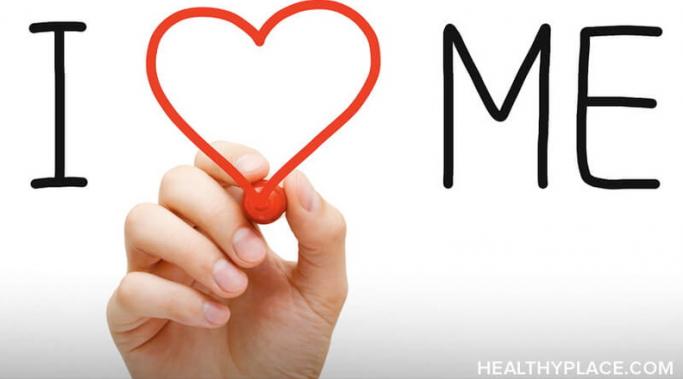Blogs
It may seem scary or even impossible to change your thoughts but you can change your thoughts to improve your self-esteem. The automatic thoughts you've had for years are familiar and served a purpose at one point in your life. However, think about how many of these are negative and hurtful. The more negative thoughts you have, the lower your self-esteem will be (How I Recovered From A Self-Esteem Setback). So wouldn't it be nice to change your thoughts and improve your self-esteem?
It's important to soothe your inner child in borderline personality disorder. When your inner child asks for something, do you listen? If not, it might be time to start paying attention, even if that means indulging in so-called "childish" things.
There are various types of treatment for posttraumatic stress disorder (PTSD), and they don't all work the same for everyone. A specific treatment may work for one person, and not another. Using a 12 step approach for PTSD, along with other traditional methods of treatment, has been helpful to me in my recovery, and it could be helpful for you. Previously, I've covered the first nine steps, and this post will explain the last three steps of the 12 step approach for PTSD recovery.
We’re pretty obsessed with time and how its passing affects mental illness. We look at the amount of time we’ve suffered from mental illness and the amount of time we’ve recovered (Another New Year With Mental Illness). We use time to gauge how far we’ve come and how far we have to go. We use it to commend ourselves for how long we’ve been fighting. This obsession with time affects mental illness, but time does not heal mental illness.
A significant part of society functions by comparing things to similiar things and when you are on a binge eating disorder journey, you quickly become aware just how incomparable these journeys are (Binge Eating Disorder Recovery Is A Personal Journey). Sometimes your recovery is going extremely well and sometimes you have a relapse. Regardless of how your recovery is going, it's completely unhelpful to be informed how someone else is doing better or worse than you are. My binge eating disorder recovery journey is not comparable to others.
I sought God early in sobriety. Faith in God or a Higher Power is a controversial issue among recovering alcoholics. Many of us grew up in homes where religion was forced upon us and consequently eschewed prayer or reliance upon any God later in life (Addiction Recovery Programs: One Step Forward, 12 Steps Back). For myself, I was not opposed to the concept as much as others, and found, in early sobriety, that it was a great comfort to me. Here are the reasons why I felt compelled to find belief in God in early sobriety and how I did it.
Anxiety lies to you. It tells you lies in order to bully you and control you. A common complaint among people living with one or more anxiety disorders is that they can't get the racing thoughts of anxiety out of their head. A reason for this is that anxiety, seemingly without stopping, feeds lies directly into your brain. When we’re told something over and over and over again, we start to believe it. By telling you certain lies, anxiety strengthens itself so it can keep a hold on you and your life. See if you recognize any of these 12 common lies anxiety tells.
Sometimes I still struggle with self-acceptance, but I recently learned a new self-acceptance activity that has helped me learn to love every aspect of myself (Mental Illness And Self-Acceptance). Do you have things about yourself that you absolutely hate? When you suffer from mental illness, self-hate can be a common occurrence. I know it is for me but you can learn to love every aspect of yourself with this self-acceptance activity.
If you belong to a family with mental illness, you need a support group. Between the genetic factors of mental illness and their coexisting conditions and effects (addiction, codependency, criminal activity, divorce, abuse, and more), families with mental illness need a place to sort it all out with people who share their experiences. Different from one-on-one therapy or chatting with a friend, you can find strength, validation, and belonging in a support group for families with mental illness.
Reading helps me cope with my anxiety. Books have long provided a much longed for escape for me during my most anxious times. It has always been a great relief to think that in the space of a few moments, I could be coping with anxiety by reading. Reading lets me inhabit the thought processes of another person when the sheer, everyday business of living with anxiety and depression becomes all-consuming. When communicating adequately in real life feels like an impossible pursuit, I have found that reading allows me to find the right words for the feelings that all too often I bury deep inside. Reading helps me cope with anxiety in many other ways, too.









